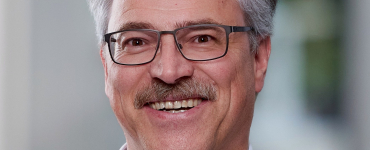IPv6 has many advantages over IPv4. At the eco German-language workshop “IPv6 in Germany – How do we help the hesitant?” experts will discuss how to make the transition a success. In an eco-interview, Dr Falk von Bornstaedt, Head of the eco Networks Competence Group, explains how this can be achieved.
Mr von Bornstaedt, how widely accepted is IPv6 today?
Acceptance of IPv6 is growing steadily. In Germany, 73% of users access Google via IPv6 today. France and India have similar figures. The US and Canada lag behind Europe, but acceptance is growing there too. In Africa, IPv6 has not played a major role. Most mobile applications now support IPv6; T-Mobile US, for example, uses 95% IPv6 addresses.
IPv6 has many advantages over IPv4, why is it taking so long to migrate?
IPv6 offers many advantages over IPv4, such as a larger address space, improved security and more efficient routing mechanisms. Despite this, the transition has been slow and there are several reasons for this. Firstly, the transitional solutions (NAT, network address translation) are working better than expected. The transition requires investment in new infrastructure and training for IT staff. For many companies and service providers, the cost of migration is not yet justified by the benefits.
How does the transition to IPv6 work?
The switch to IPv6 is a complex process with many challenges. However, it is an important step towards securing the future of corporate networks and the Internet. A concerted effort by all stakeholders is still required to realise the benefits of IPv6 and make the transition a success. Governments can provide support by demanding IPv6 in tenders and upgrading their own networks to IPv6 services. On 17 January 2024, the Czech Republic set 6 June 2032 as the fixed end date for IPv4 for all government services on the Internet. This leaves 3000 days for the transition. We should examine whether a similar step would make sense in Germany.
Mr von Bornstaedt, thank you very much for this interview!
With the IPv6 workshop on 26 February 2024 in Frankfurt, we would like to revisit the results of our IPv6 acceptance survey from 2023, put individual aspects and solutions to the test and discuss concrete recommendations for a rapid migration. Register now!




